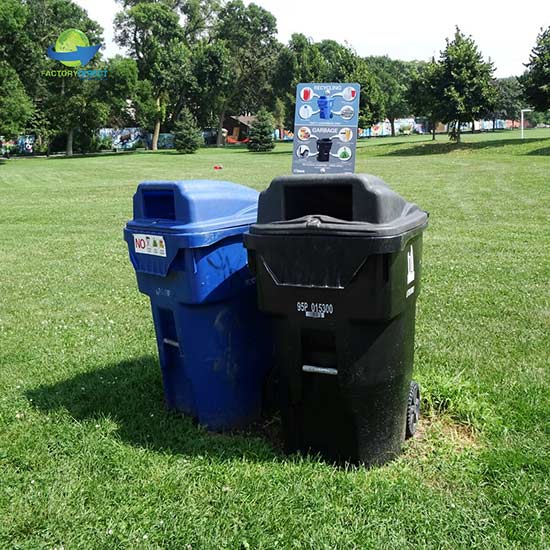3 Reasons You Should Kick Wishcycling to the Curb TODAY!

Why It Pays to Read the Labels When Recycling
Wishcycling is the act of tossing an item in a recycling bin when you’re really not sure if it can be recycled. This seems harmless enough, but it can actually have some pretty serious consequences if you guess wrong. This behavior is incredibly normal and wishcycling seems like the right thing to do, but it really is not. Understanding wishcycling makes the ramifications more clear. We’re probably all guilty of wishcycling, but it doesn’t have to be that way! Here are three reasons why you should stop wish recycling today.
3 Reasons to Stop Wishcycling
1. More Trash
Items for recycling are sorted when they arrive at a recycling facility. Sometimes it is possible to remove wishcycled items that ended up in the recycling bin by error. Sometimes it is not possible to remove items that cannot be recycled. When non-recyclable items are not removed from the recycled content, it may contaminate the whole batch. If a bundle or bale of recyclable content contains any non-recyclable materials the whole thing is typically thrown in the trash. Pretty much the last thing we need is more trash.
2. Time is Money
When an item that cannot be recycled ends up mixed in with recyclables, it has to be removed during a sorting process. Some items, like single-use plastic bags, can jam up the processing equipment if they are not removed in time. The sorting equipment is designed to handle items that can be recycled, but when an item that cannot be recycled becomes stuck in the machinery, it will need to be removed. This involves shutting everything down and that causes the business to lose money.
Some facilities manually sort items, and it can be time-consuming when there are a lot of wish cycled items in the mix. The longer the sorting takes the more money it ends up costing the business.
The recycling industry makes money by selling recyclable content to manufacturers. When a contaminated bale cannot be sold the business loses money. Materials were processed and employees were paid, but the product was not sold.
3. Lost Resources
Contaminated bales cost the recycling facility money, but they also result in lost resources. This is horrible because it means a lot of items that could be recycled will not be recycled. The wishcycled items will end up exactly where they belong, but the recyclable content will forever be lost to the manufacturing industry. New resources will have to be used to replace the metal, glass, and plastic that was tossed in the trash.
We’re Here to Help
One of our missions is to help organizations increase proper recycling and help people understand what can and cannot be recycled. We do this by offering our reusable recycling bags. These bags are particularly useful in apartments and multi-family dwellings.
Our reusable recycling bags provide an easy way for tenants to carry items to a collection bin for recycling. Another perk of our reusable recycling bags is that they reduce wishcycling. Recycling instructions and helpful information can be printed directly on the recycling bags to help educate tenants. Learn more about our reusable bags to help increase recycling rates!
Tagged




